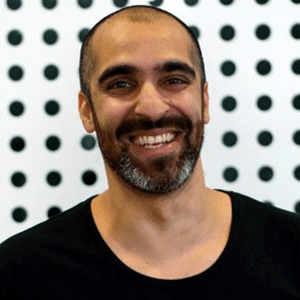

#10: Is there a better road ahead in fy 2020 for mid size and small business CEOs and business owners?
In this episode, Warren Hogan reveals confidence has jumped in last 3 months – This June quarter CEOs and business owners feel the economy has turned a corner but it isn’t all clear roads ahead; with talent and access to credit remaining key challenges for leaders looking to drive growth in FY 2020.
Warren Hogan is the Managing Director and Founder at EQ Economics and Economic Advisor at Judo Bank. Warren is also a columnist for Financial Review, contributor to Sky News and has experience working for NSW Treasury, Westpac, Credit Suisse, ANZ Bank and more.
Warren shares insights that CEOs remain optimistic about their own prospects, forecasting growth and increased investment in the next 12 months.
This June, CEO Confidence Index reveals retaining and attracting talent is a key concern for CEOs, and leaders are increasingly adopting new, people-focused programs to tackle their talent challenges.
With Federal Government policies and mechanisms to stimulate growth in small-to-medium businesses are largely under utilised, with the majority of SME leaders not yet capitalising on key benefits outlined in the Federal Budget.
Stephanie: It’s great today to welcome back Warren Hogan, TEC’s chief economic advisor. Welcome Warren
Warren: Thank you, Stephanie. It’s great to be here.
Stephanie: Yeah, so it was around budget time we spoke last time, wasn’t it?
Warren: Yeah, it’s been a few months now.
Stephanie: So this time we’re going to pick up on the TEC CEO Confidence index and what’s that shown. So, what’s happening?
Warren: Well, I’ve been waiting for this with bated breath because in the last three months, we’ve seen a lot happen in our economy. If you go back to around the time of the budget, everyone was very concerned about the economy. Consumer spending was very weak, we had an election coming up, that was putting everything on hold, whether you’re a consumer or a business, so the whole thing looked quite messy out there, and this survey, I think, gives a really timely, accurate read, an accurate sort of pulse on what’s happening in the economy.
Of course we’ve also seen the result of the election, which saw the return of the government, which is a very mundane outcome, which I think business likes mundane. We’ve seen rate cuts from the RBA, and of course we’re all hoping that this economy is going to be okay, and the results, I think, really, the headline is, we’ve seen a bounce. The economy’s coming back.
There’s been a big shift in expectations from the members, which I think is more than representative of not only the SME sector but the business community more generally, and I think it tells us that this economy is doing better than what many have been telling us for the last three or four months.
Stephanie: And that’s what I want to talk about, and we’ll get to optimism later and the optimism of the participants in the survey. Are you more optimistic than your colleagues around the economy?
Warren: Look, I think I have been for the last six months, and that’s not ignoring the fact that there’s a significant adjustment process going on in the economy, which is all about weaker house prices. We had a bubble in Sydney and Melbourne. There was no two ways about it. That peaked in 2017 and we’ve seen substantial falls, to the point where in the second half of 2018 it was panic.
The consumer is having to readjust the way they go about their finances, their spending, to this lower level of wealth, and it’s substantial. We now have data on it from the ABS, and consumer wealth has fallen by about … It’s only measured out as about 3%, but over 400 billion of wealth was wiped out last year.
Stephanie: And what’s that made up of? How do they measure consumer wealth?
Warren: It’s the two big items. It’s superannuation, which is largely securities, and it’s houses, which is obviously made up of land and the value of the house.
They’re literally 90% of wealth, and it was all houses. I mean, at the end of ’18 we had a weakness in the equity market, and that was all looking very precarious for the consumer because not only was house prices going down, but equities were doing down. This year, equity markets have bounced and they have come roaring back around the world, including here, and the housing market now seems to be stabilizing.
So, consumers were really only spending on the necessities in late 2018, early 2019, on a view that they really weren’t too clear of what their wealth
Stephanie: Well, it was that whole uncertainty, too, wasn’t it?
Warren: Yeah, well there was not just the wealth issue, there was low income growth. I think people have realized now that we’re not going back to the kind of wage growth that we saw 10, 15 years ago, so people are accepting that and, again, adjusting … the spending, saving patterns, and then there was the uncertainty related to the election, which I think you should never underestimate how much that gets people sort of stepping back for a few months, and I think this election was an important one on that because the Labour Party presented quite a big program. I think it’s been a huge influence on business in the last few months, and this survey result has been that election outcome. People were very worried about a big shift in government policy when the economy was quite fragile.
So, the survey has revealed that businesses are really a big sigh of relief and also are more optimistic on the outlook for the economy than they have been for a year, and I think this bodes very, very well, because this idea that the adjustment that consumers are going through, the lower spending rates is going to sort of gradually just tip us into recession, I don’t think that’s the right way to think about it and that’s why I have been slightly more optimistic.
The reality is I’ve been utterly realistic about the fact that the economy was going to be soft, but I never bought into the view, and I still don’t, that we’re going into recession.
Stephanie: So tell me, then, about interest rates. At the time of this conversation, interest rates had a cut this week. Was that a surprise? Or what was your view of that, actually?
Warren: Well, I think that the RBA could probably have gotten away without cutting interest rates. We’ve already got extraordinarily low interest rates in this country, and this is all the result of the global environment where countries from Japan to the United States to Europe, UK have been not only going to zero interest rates but been doing quantitative easing, pumping money into the system for a decade now, and that’s sort of dragging the RBA with it.
The reason the RBA cut is not because that they were fearful that the economy was going into recession. They’ve made that perfectly clear for the last few months. The big thing for them was inflation has surprised them.
Inflation was slowly heading back up towards the bottom of their target, their target of 2 to 3% last year, and then they got a reading at the end of 2018 that was quite soft. But one reading doesn’t sort of, you know, you don’t want to over read it, but then the result for Q1 this year was very weak and actually showed a trend that inflation was heading back down again, and well below their target.
There’s a lot of stuff that goes on with central banks, but they take their target very seriously, let’s just put it that way, and I think they felt they needed to defend it.
Now I’m of the view that they should actually have a think about whether that target’s realistic in this day and age. It was set up in the early ’90s when we were very inflation prone, and it’s a target that’s higher than the rest of the world. The rest of the world’s inflation targets are around 2, not 2 to 3, and I think the RBA could’ve had that route, especially with the change of government or an election and a new government coming in, but no politician wants low inflation than high inflation. They love inflation, politicians. And so they cut in response to this low inflation result, and they’ve presented it to the community as we can do better on unemployment. We can push the economy a bit harder.
The problem I have with that view is that once interest rates get to a certain point, you question how effective they are and also the unintended consequences, so I think that the big news story in the wake of this second rate cut is just how much damage this is doing to the incomes of people who rely on their savings.
Retirees are the obvious ones. Term deposit rates have all but disappeared in the last 10 years in this country and you don’t really get any income, maybe a percent or two, and then the other one is saving up for a deposit for a house. That’s just going to make it harder for young people because they’re not getting much interest income.
Stephanie: So you don’t necessarily think it’ll have the obvious influence, then, on the housing market.
Warren: Oh, no, I think it will. Because of my more optimistic view, relatively optimistic view-
Relative to the consensus, I actually think the housing market was in a process of sort of stabilizing and, look, whether they’ve cut rates or not, it’s not going to come roaring back. There’s no evidence historically that the housing market after a big event like this has a big bounce back. It’s a very different dynamic to equity markets and other asset markets.
So the rate cuts will certainly support this process of price stabilization. It may even lift volume a bit, get more first home buyers in there, get more confidence in the market, which is good for the industry, but I don’t think it necessarily … I’m not as worried as we’re seeing some reports about asset price inflation and about runaway debt and so forth.
People have been burnt in the last few years and they’re going to be very cautious, but what you worry about is when house prices have been creeping up for sort of five years and then they really start going and then everyone sort of piles in thinking this is going to go on forever, which is sort of what we saw in the 2015/’17 period.
So, look, I think the rate cuts are going to have an effect where they speed things up, so, for me, that just raises my confidence that the economy is going to do not only a lot better next year in 2020, but probably will do a lot better in the second half of this year.
Stephanie: Okay, so back, then, to the survey and the optimism that we saw from the participants in the survey: CEOs, business owners, mid-size businesses.
Warren: Yeah, mid-market.
Stephanie: So tell us about some of the key results that you found.
Warren: Well, there’s two sort of main components that I look at. One is when you ask these owner-founders about what they’re doing with their business and when you ask them about what they think about the external environment, the economy.
Stephanie: They’re two separate questions, aren’t they?
Warren: In the last year it’s been a stark divergence, so the questions relating to the economy in the last 12 months have essentially collapsed.
Now, the view on how the economy’s performing now, and we reference a year ago, has fallen significantly since the middle of 2018, and the other question is, how do you think the economy will perform in the year ahead? also fell substantially, to the point where on net, net 20% of respondents thought the economy was deteriorating and would continue to do so in the last result.
Well we’ve seen both of those indicators bounce. The good news is the indicator that talks about the future of the economy has bounced substantially from net negative 20%, or an index reading of 80, to well above that positive-negative 100 line.
Stephanie: Isn’t that interesting?
Warren: Yeah, well this, for me, is first of all the election, which obviously is a bit of old news but it’s sitting there behind the scenes and important to business, then, of course, the rate cuts.
Then I think the other thing, the other two issues that’s sitting there in the background is sort of the green shoots we’re seeing in Sydney and Melbourne property markets, just that idea that we could be stabilizing.
Stephanie: Yeah, well, auction clearance rates are up now well into the 60s, aren’t they?
Warren: Yeah. The auction market’s clearing at a rate that says house prices are going to go up 5%. That’s the historical relationship, but I think just the idea that the market’s no longer in this sort of panic-falling price environment is really important for business people. It’s a massive source of confidence, and not just for them in their business but for their customers in the broader community.
Then the final piece of the puzzle I think is the international environment led by this surging Wall Street. Equity markets hitting all-time highs, Trump jeering it on the whole way, and that’s somewhat reflective of a stable world economy, somewhat reflective of the fact that the US Federal Reserve, if their interest rates a) have said they’re not going to raise them, and that’s been going on for a few months now, but then there’s hints that they might cut them so that stimulus to the US economy being very supportive, and then, of course, the on again, off again trade war.
Stephanie: Yeah, that’s right.
Warren: It’s sort of always there, but it heats up. I mean, Trump is really into theatrics. Heats up, and then it cools down, and, of course, just recently it’s cooled down with the G20 meeting in Japan.
Stephanie: So do you think Australian businesses are following that really closely or they kind of go with the trend, which is relatively …
Warren: Look, from everything I can tell from speaking to the members of TEC, through to my experiences in the past, is Australian businesses look to the rest of the world. They’re going to make decisions about what’s sitting in front of them, of course, but they know how important the global economy is to Australia, not just because of our export markets but also we’re highly engaged in the supply chains of the world. A lot of our customers, a lot of the TEC members are part of those supply chains, they’re importers, so I think the international environment’s extremely important to them.
For example, another major issue for Australia in the world economy in the last few months has been the surging iron ore price. Now, I’m not sure if too many of the TEC members are directly related to iron ore markets, I don’t know that, but …
Stephanie: A number of them certainly would be.
Warren: Yeah, in WA. But they all know intuitively that this is a great thing for Australia, and there’s actually another sort of story there related to fiscal policy, so there’s a lot of positives out there.
It’s not just this falling housing market, this sort of constant doom and gloom, which professional economists seem to just make a fine art of and the media seems to love transmitting out into the rest of the world. There are some real positives there, and the survey’s picked that up. The members believe that the economy is going to improve now.
Stephanie: So that’s the external view from the participants. What about their own businesses? What were you seeing?
Warren: Well this is where I described them as stubbornly optimistic, and the reason I put it in those terms is through that period last year when their views on the rest of the economy started to really deteriorate, their views on their own business didn’t. They’ve slipped. The optimism is not as strong as it was in the middle of 2018, but they are still sort of … An overwhelming majority of TEC members are investing, expect sales to grow, expect profitability to improve and are hiring staff.
It’s down a touch from last year, and this survey, actually, a couple of those, some indicators fell, a couple of them went up, but they are still in strongly positive territory, and this tells me that they are all planning to take advantage of that stronger economy.
Stephanie: I know one of the other findings from the survey, and we did specifically ask questions about talent and access to talent for business owners and CEOs, so some interesting things came up there, didn’t it?
Warren: Yeah, it was fascinating. This wasn’t so much a series of questions for an economist like me, I think it was more about how TEC can help their members.
But for an economist like me, it was fascinating, because one of the mysteries, not just in Australia but round the world, is why wages growth has been so slow in the last five years, and the questions asked about what are your main talent management issues? The top two were retaining and attracting staff, which I think’s perennial.
Stephanie: Hasn’t changed for years.
Warren: No, that’s key. There’s a whole range of other issues around there, which is important. But then asked to go into a deep dive, how do you do it? How do you retain? How do you attract staff? The amount of respondents who came back with what an economist would tell you, i.e. increase wages, was incredibly low.
Stephanie: It was low, wasn’t it?
Warren: To retain staff, there were 10 main responses that we got in the survey. Boosting wages was number nine out of 10.
Stephanie: Did that surprise you?
Warren: Completely. Especially coming from a financial markets background where the solution to most people’s problems-
Stephanie: Throw money at it.
Warren:… is, yeah, throw money at it, pay a bonus, which a lot of financial firms have learnt is not the right way to go about it, for cultural reasons, if nothing else. To retain staff, get your culture right, was the number one response. 65%, I think, of people said that, which is really, really interesting.
Flexible work arrangements, working remotely, number two.
Stephanie: It’s really interesting that idea of flexible. We had a great conversation a couple of weeks ago with Stephanie Reuss and Victoria Stuart talking about fractional and flexible work and the opportunity that is for organisations, and there was an article in Business Insider today about a digital marketing firm that’s actually gone to a four-day-a-week working week and have had an increase in profitability, so that’s a whole other conversation that’s interesting.
What do you think this says from an economist viewpoint that it was number nine, that salary increases …
Warren: Yeah, well it tells you that business is working really hard to a) find other ways of attracting and retaining talent, and also, I think, as a community we’re understanding that work is more than just about pay.
I think this is something that’s really become quite prominent in the last 10 years, because businesses have so much more access to knowledge, around their management, around what works, and I think this is happening all around the world.
The knee-jerk reaction to sort of finding … I think the question that is, you know, is it hard to find labour? Is the labour market tightening up? And with the unemployment rate at a 60-year low in the United States and something similar in the UK, there is going to be difficulties finding labour, and business are not just responding with higher wages, as they may have in the past. They’re looking at these other processes.
What this tells me is that it actually raises this question of what the Reserve Bank here is doing, because what they’re saying is, we’re getting low inflation, we can afford to cut rates, stimulate the economy, and we’ll get unemployment down and get wages and inflation up. Well that might be a long process for the RBA.
Stephanie: Because there’s not a real change in wages, is there? It’s still between 2 and 3%.
Warren: Yeah, well we actually asked-
Stephanie: Wage growth, that is.
Warren: … yeah, what are you expecting to pay in wage increases? And two-thirds of respondents were less than 3%, about 40% were less than 2%. So this is a certainly tight-ish labour market.
Some businesses are finding labour difficult to find, qualified labour, but they’re not sitting there going, ‘We’re going to pay a lot more. We’re going to run our businesses better. We’re going to be attractive workplace and we’re going to make things flexible.’ And, of course, that just means that the Reserve Bank, if they just keep cutting interest rates to try and get the unemployment rate down and get wages up in this old model, they could be misguided.
Stephanie: So, Warren, it’s really interesting that talent, attracting, retaining, that’s nothing new for small business, or for business of any size in Australia, and that’s been going on for a number of years. But interesting insights from you about business leaders identifying the other options beyond salary that research shows is often far more effective.
Warren: Well the thing that came out in both attracting and retaining talent was the need for flexible work arrangements and the ability to work remotely, and this has been going on for a while, but it’s actually not necessarily cheap or easy to get those practices set up in a business, so this is clearly something that people want and is really important to them.
Stephanie: It’s a significant shift in the work paradigm, and that’s something that we’re interested in talking about here.
So, given an increase into the net positive view of the economy and maintaining optimism about their own businesses from the participants, what do you think the results of this survey, then, indicate for the broader economy?
Warren: Look, if I had to put my money where my mouth is, that would be betting on the economy improving over the next six months and doing better next year. I think we’re at a turning point. You know, it’s not going to be big bounce, but I think we’ll see a much better spring selling season for the housing market, I think we’re going to start to see business confidence improve, as we have here. I think it tends to get momentum, it doesn’t tend to be volatile from corner to corners, and that should result in continued employment growth and hopefully, next year, lower unemployment.
We’re just seeing this week not just a rate cut but a significant tax cut pass through the parliament.
Stephanie: That’s right. That’s right.
Warren: Presented to the people- Just through, and the whole package. And people are focusing on what it means right now, which is the lower middle income tax offset, which is essentially a cash handout to a very significant number of Australians, bigger than what Rudd and Swan did in the GFC.
Stephanie: That’s right. We’ve talked about that.
Warren: That’s going to hit the economy. And if it doesn’t get spent and it’s saved, well that’s part of that process we were talking about earlier of people trying to get their finances in order, so it’s going to be helpful no matter what. It’s hitting the lower and middle income earners who, when they do spend, it has quite a big impact because there’s a lot of them, so that’s going through.
But we shouldn’t underestimate how important it is the tax cuts that are flagged for down the track. That has an impact now, and the reason it does is that the government’s saying, ‘We’re going to give you a tax cut in three years’ time. We’ve got a surplus, i.e. we’re not going to come for more taxes in the future, and we’re in good financial health, so you should have confidence to go out and invest and spend.’
So, those flagged tax cuts also can help in this process of consumers trying to get comfortable again with their financial position.
So I’m confident. I think the uncertainties are always sitting there around the international economy, but as long as that continues to be okay then I think we’re going to have a good second half.
Stephanie: We’re in a good position. That’s great. So, for those of us who are heading to Hawaii in a couple of weeks, what’s the Aussie dollar going to do?
Warren: Look, it’s surprisingly … Two rate cuts and it’s gone up. And that’s because of the iron ore price. The iron ore price has been a rocket ship. It’s doubled in the last six months. This is part of the Chinese response to the trade war to invest in infrastructure.
I can’t see that being sustained, so my view is that the Aussie dollar is not going up much further and, if anything, it could drop a fair bit. I think it’s into the mid to high 60s in the next few months and probably the mid 60s next year.
Stephanie: Right, okay. Always interesting to get that view from you.
This is what’s great about you, Warren. Your general commentary on the economy is really interesting, but then that you can kind of go deeper into what we’re seeing in the results of the survey from an interesting group of CEOs and business owners, so look forward to talking next time as you continue to read the tea leaves, but, Warren Hogan, thank you very much.
Warren: It’s a great survey, Thanks, Stephanie, for having me.



